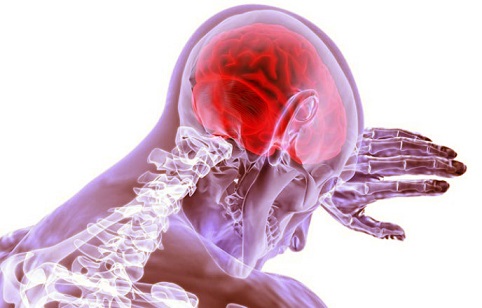Nikhik Prasad Fact checked by:Thailand Medical News Team Oct 17, 2024 1 year, 3 months, 2 weeks, 6 days, 11 hours, 9 minutes ago
Medical News: A new study offers important insights into how proteins from the COVID-19 virus (SARS-CoV-2) could be affecting the brain. Researchers from the University Medical Center Göttingen-Germany, China Medical University, and Lund University-Sweden have found that certain viral proteins may trigger inflammation and damage to brain cells, potentially leading to neurodegenerative diseases like Alzheimer’s and Parkinson’s. This
Medical News report will explain the key findings and what they could mean for long-term COVID-19 symptoms.
 SARS-CoV-2 proteins linked to brain inflammation and neurodegeneration
Key Findings: Protein Aggregation and Inflammation
SARS-CoV-2 proteins linked to brain inflammation and neurodegeneration
Key Findings: Protein Aggregation and Inflammation
COVID-19 is mainly known as a respiratory disease, but it has been increasingly linked to neurological symptoms such as headaches, memory problems, and even severe brain damage. This new research sheds light on how specific viral proteins might be responsible for these issues.
Researchers focused on two main problems caused by SARS-CoV-2 proteins: protein aggregation and inflammation. Protein aggregation is when proteins clump together in cells, which can lead to cell dysfunction. This process is often seen in neurodegenerative diseases. The study found that certain COVID-19 proteins, including NSP4, ORF3a, and ORF6, tend to form such harmful clumps.
The proteins were tested in two types of cells: human kidney cells (HEK293T) and mouse microglia (BV2), a type of brain cell that helps fight infections.
In the kidney cells, several viral proteins showed a tendency to form these protein clumps, known as "aggregation puncta," which is an early indicator of cell damage. Specifically, the viral proteins NSP4, ORF3a, and ORF6 were most responsible for forming these harmful clumps.
In the mouse brain cells, the viral proteins ORF6, ORF7a, ORF7b, and ORF10 were found to trigger inflammation. The cells released high levels of inflammatory molecules called cytokines, including TNF-α and IL-6. These molecules are known to be harmful when overproduced, as they can cause chronic inflammation in the brain. Interestingly, this inflammation occurred without activating the usual immune response mechanism (known as the inflammasome), suggesting that COVID-19 proteins may be causing damage through a different pathway.
Why Is This Important?
Understanding the way these viral proteins cause damage can help us figure out why some people experience long-term symptoms after COVID-19, particularly brain-related problems. Long COVID, which can include symptoms like brain fog, memory loss, and even mental health disorders, may be linked to the direct effects of these proteins on brain cells.
The study shows that the virus doesn’t need to enter the brain entirely to cause damage. Even fragments of the virus - its proteins - can interfere with the brain’s normal functioning, leading to inflammation and cell damage. This could be one of the reasons why some people experience neurological symp
toms long after the initial infection has cleared.
Potential Treatments
One promising aspect of this study is the discovery that boosting the cell’s ability to clear out damaged proteins can help reduce the harmful effects of COVID-19 proteins. The researchers found that by enhancing autophagy - a process cells use to clean out damaged components - they could reduce the amount of protein aggregation caused by the viral proteins.
For example, the drug Torin1, which is known to boost autophagy, was able to reduce the harmful clumps formed by the viral protein ORF6. This suggests that treatments aimed at improving the body’s natural cleaning processes might be effective in reducing some of the brain-related symptoms of long COVID.
Conclusions
In summary, this study highlights how certain proteins from the SARS-CoV-2 virus can cause long-lasting damage to brain cells by promoting protein aggregation and inflammation. The researchers suggest that these effects could contribute to the development of neurodegenerative diseases in patients who have had COVID-19.
This discovery is a crucial step in understanding the long-term effects of COVID-19, particularly on the brain. While the findings are still in the early stages, they provide a foundation for developing new treatments that could prevent or reduce brain damage caused by SARS-CoV-2 proteins. One of the most promising approaches highlighted in the study involves enhancing the brain’s natural ability to clean out damaged proteins
The study findings were published on a preprint server and are currently being peer reviewed.
https://papers.ssrn.com/sol3/papers.cfm?abstract_id=4981837
For the latest COVID-19 News, keep on logging to Thailand
Medical News.
Read Also:
https://www.thailandmedical.news/news/study-links-covid-19-lung-infection-to-brain-inflammation-without-direct-viral-presence
https://www.thailandmedical.news/news/the-phytochemical-honokiol-from-the-magnolia-tree-combats-neuroinflammation-and-brain-aging
